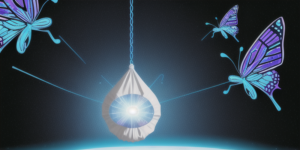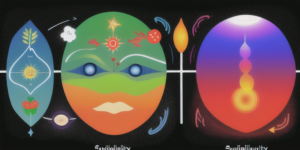Have you ever considered the psychology of a perpetually forgiving individual? It’s an intriguing concept, isn’t it? This is a person who seems to possess an endless capacity for forgiveness, always ready to pardon those who trespass against them. They exude a saintly aura, always on the high road, setting aside all wrongs inflicted upon them. But doesn’t this situation seem a bit… peculiar?
Let’s pause for a moment and delve deeper into the underpinnings of this phenomenon. What prompts this continuous cycle of forgiveness? Could it be that you are constantly wronged? It seems almost ironic, doesn’t it? To be perpetually forgiving is to suggest a life that is persistently filled with conflict or disappointments. Could it be that you are an unintended magnet for mistreatment, or perhaps, is there something else at play here?
The act of forgiveness often arises from the ashes of failed expectations. After all, we forgive when we feel wronged, when our expectations aren’t met. But why do we find ourselves in such predicaments so frequently? Is it because we hold people to such high standards that they invariably fail to meet them? Or perhaps, we have an uncanny ability to take offense so quickly, hence the constant need for forgiveness?
If we examine this phenomenon from a different angle, an always forgiving person could appear quite discriminatory. They might seem to take offense easily, setting themselves up as the superior moral authority. After all, only the ‘offended’ can offer forgiveness. Is this an unconscious ploy to assert moral dominance, cloaked in the guise of humility and benevolence? “I have forgiven you,” they say. But, doesn’t this statement also implicitly suggest, “I am morally superior to you”?
However, it’s essential to remember that not all situations are the same. There are instances where people genuinely behave inappropriately, and it’s only right to acknowledge the pain caused and to strive for reconciliation. But even then, we must introspect. Why do we attract such behavior? Why do we find ourselves surrounded by foes? Could it be that we play a role in the creation of these conflicts?
Further, let’s consider the motivation behind forgiveness. Do we forgive because we’re told it’s virtuous? Because it positions us on the moral high ground? This idea of “I am more enlightened, hence I forgive you” could be a mere illusion of superiority. And if the sentiment of forgiveness is not genuine, does it not simply mask a simmering bitterness?
And what about the residual feelings post-forgiveness? Is it true forgiveness if resentment still lingers within us? If our heart still harbors bitterness, then what is the purpose of the grand spectacle of forgiveness? It’s a serious matter to ponder, isn’t it? Is the act of forgiveness a facade, or does it genuinely cleanse us of all animosity?
In essence, a person who is forever forgiving presents us with a fascinating paradox. They seem saintly, but could it be that this perpetual state of forgiveness indicates a more profound issue? It is a thought-provoking premise, worthy of deeper introspection and understanding. Perhaps, in our quest for moral supremacy and benevolence, we must first confront our predispositions and expectations, ensuring our act of forgiveness is not just a hollow ritual but a true release from resentment.





